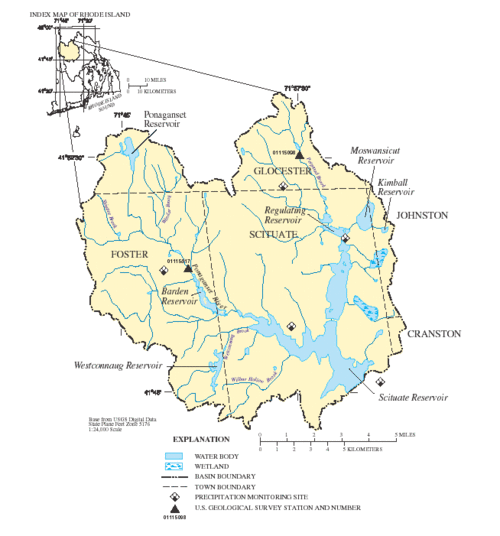Stop the ATV angst in Providence
Adapted from Robert Whitcomb’s “Digital Diary,’’ in GoLocal24.com.
It seems that Providence Mayor Jorge Elorza’s administration has been unwilling or unable, at least until recently, to strictly enforce laws against the use of ATV vehicles and dirt bikes on city streets, despite the very serious public-safety and quality-of-life issues such vehicles pose, especially given the arrogant, selfish and menacing irresponsibility of some of their riders. Indeed, the mayor has expressed an interest in legalizing their use on city streets, for those who would receive licenses and insurance for such use, although he has more recently back-tracked on that.
So, as a recent GoLocalProv.com article suggested, perhaps Rhode Island Gov. Dan McKee should send in the State Police to arrest these riders. ATV’s and dirt bikes don’t belong on city streets.
To read the editorial, please hit this link.
Providence's 'Great Streets' initiative
From ecoRI News (ecori.org)
PROVIDENCE — Following a year of community engagement, the city’s “Great Streets’’ initiative has established a framework for public-space improvements to ensure that every street is safe.
City officials said the plan’s creation was informed by insights generated “from thorough analysis of crash data, traffic calming requests, and housing and transportation figures.” According to the city, the 94-page plan outlines “a bold vision for the future of Providence’s largest public asset, its streets.”
“Great Streets rebalances the public space of our streets to meet the needs of all residents,” said Bonnie Nickerson, the city’s director of planning and development. “It’s a new approach to how we invest in Providence that will have a long-term impact on safety, equity and resilience.”
Covering about 13 percent of Providence’s total land area — some 1,500 acres — streets play a central part in the city’s neighborhoods. A key strategy outlined in the plan is reducing household transportation costs by making it more convenient for people to use and access affordable transportation options such as walking, riding bicycles, and public transit.
Other goals include improving traffic safety and personal safety within the public realm for people of all ages, abilities, and economic statuses, lowering greenhouse-gas emissions, and improving public health. According to the World Health Organization’s 2018 Global Status on Road Safety report, traffic-related crashes are the No. 1 cause of death in children and young adults aged 5-29.
The plan complements the work of ongoing infrastructure projects outlined in the city’s FY2020-FY2024 Capital Improvement Plan (CIP), signed by Mayor Jorge Elorza in early January. Over the next five years, the CIP identifies nearly a $20 million investment in Great Street initiatives. These improvements include: streetscape and placemaking projects; safety improvements to make streets and intersections safer for people walking and riding bicycles; traffic calming to reduce speeding and cut-through traffic; and the creation of a “spine” network of urban trails that connect every Providence neighborhood.
These improvements will bring 93 percent of residents and 95 percent of jobs within easy walking distance of the Urban Trail Network, according to city officials. This is a significant increase compared to the 21 percent of residents and 37 percent of jobs within easy walking distance of the existing network.
According to the city, urban trails are on or off-street paths that are “safe, comfortable, and easily accessible for people of all ages and abilities.” On busy streets, urban trails are fully separated from vehicle traffic. In other instances, off-road trails and paths such as the Blackstone Bike Path and the Woonasquatucket River Greenway serve as part of the Urban Trail Network.
Laundering social dysfunction
From Robert Whitcomb’s “Digital Diary,’’ in GoLocal24.com
In another sign of our society’s dysfunction, Providence Mayor Jorge Elorza has put forward a plan, which apparently isn’t going anywhere for now, to spend $50,000 to buy washing machines to put in schools. The idea is that this would reduce absenteeism by students embarrassed to come to school in dirty clothes.
But cleaning clothes is a household function, not the schools’. Why are some parents – and their children - not dealing with this? I suspect it’s connected with the chaos at home of some single-parent (overwhelmingly it’s the mother) households. Please, let’s bring back marriage and two-parent households, especially in low-income places. For the schools to provide such basic services as laundry will only encourage people to throw more such intrinsically private obligations onto the public sector.
Far too many young people are ill-prepared economically and psychologically to be parents.
Tim Faulkner: Providence's stunning new food-distribution center
Artist’s rendition of Farm Fresh Rhode Island’s coming food-distribution center in Providence.
Via ecoRI News (ecori.org)
PROVIDENCE
This city recently celebrated its designation as a food capital by recognizing three new food ventures and a book touting its success at making food a cultural, educational, and economic engine.
The businesses — all under different stages of construction — include the relocation of Farm Fresh Rhode Island’s food distribution center to a 60,000-square-foot building on a 3.2-acre site off Valley Road, the 110,000-square-foot greenhouse for Gotham Greens on Harris Avenue, and the Urban Greens Co-op, a tenant in a new commercial and residential space on Cranston Street.
All of the projects are being built on remediated brownfield sites. The three organizations use food to bring together culture, arts, and economic growth for a “a new green future,” Mayor Jorge Elorza said at the May 30 “Edible Providence” event. “It’s just a way to bring us together as a community.”
The mayor spoke of celebrating his Guatemalan heritage through traditional foods such as tortillas, black beans, carne asada, and guacamole — all of which have been enjoyed and adopted by other cultures.
“Food has such a transformative quality to it in Guatemalan culture and in every culture throughout the world,” Elorza said.
Providence also was profiled in a chapter of the United Nations book Integrating Food Into Urban Planning. The planning guide looks at food systems in 20 cities, including Toronto, New York, Bangkok, and Tokyo.
The book shows how food is used across municipal agencies to address a range of issues such as health, diet, recreation, education, planning, and waste management.
Providence was singled out for having the forethought to increase food security and nutrition through collaboration between businesses, residents, and government.
Bonnie Nickerson, director of the city’s Department of Planning and Development, said the creation of the Office of Sustainability brought together several independent initiatives and policies. Changes to zoning regulations advanced programs for beekeeping, urban farming, and backyard chickens.
Nellie de Goguel, of the city’s Office of Sustainability, said the city is in the early stages of launching a curbside food-scrap collection service within a single neighborhood. The city has a goal of having 100 restaurants divert their food scrap for compost by 2020. So far, 12 restaurants are onboard through the city’s composting program.
Ellen Cynar, director of the city’s Healthy Communities Office, said new programs such as Lots of Hope created access to vacant land for neighborhood gardens and urban farmers. The city has a goal of hiring a farmer to manage the public farming and garden areas at city parks. Thanks to a federal grant the city is developing a farm-to-school program.
Cynar said the program will help students learn about the relationships between the environment and food.
Tim Faulkner is an eco RI News journalist.
But sell the reservoir?
From Robert Whitcomb’s “Digital Diary,’’ in GoLocal24.com.
‘Congratulations to Providence Mayor Jorge Elorza’s administration for ending fiscal 2018 with a $9.2 million surplus, for the third surplus in as many years. This leaves a modest rainy day fund of $11.3 million.
Mayor Elorza’s chief of staff, Nicole Pollock, said “This surplus was achieved primarily through realistic budgeting practices, a steady increase in tax collections, a hiring freeze on nonessential employees, better departmental revenue and reduced operational expenses.’’
But the last few years have been relatively prosperous. What happens in the next recession? And what about the city’s unfunded pension liability of $1 billion?
So the city should continue to investigate whether it can sell the Scituate Reservoir for several hundred million dollars.
Please get married, Mayor
-- Photo by Ldavis38
From Robert Whitcomb's "Digital Diary,'' in GoLiocal24.com:
Obviously this is a very personal matter but I can’t help saying that I wish that Providence Mayor Jorge Elorza would marry his girlfriend Stephanie Gonzalez, with whom he is having a baby. Marriage is obviously no panacea for society’s ills but the fact is the obligations associated with the institution are stabilizing forces for individuals and society, especially because they help to legally protect children. And parents’ failure to wed is correlated with high poverty rates, crime and other social function. You can see the effects of the rise of “illegitimacy’’ around America, especially in inner cities and in poor rural areas. I wish that the mayor and his girlfriend would set a good example for the citizenry –especially young people – and get married. You could look at marriage as the smallest unit of go vernment. Without it, you’re spawning anarchy.
A Providence Guatemala Summit
On Oct. 11-16, the City of Providence will host the Providence Guatemala Summit. Dignitaries from Guatemala, led by Former Guatemala President and now Guatemala City (the nation’s capital) Mayor Alvaro Arzu, will visit with Providence Mayor Jorge Elorza and other city and state dignitaries and sign a Sister City agreement between Providence and Guatemala City. The dignitaries will also help broker relationships between business counterparts from both nations. Mayor Elorza’s parents emigrated to the U.S. from Guatemala.
This agreement will expand economic, cultural, and academic exchanges between Providence and Guatemala, as well as acknowledge the substantial Latino(a) community in Providence and, more broadly, in southern New England. Note that Providence hosts the Guatemalan Consulate for New England.
Former President Arzu negotiated an agreement in 1996 to end a bloody 36-year civil war.
To mark the 20th anniversary of the signing of the peace pact, Mayor Arzu will speak on Oct. 12 at noon to 1 p.m. in the Joukowsky Forum at Brown University’s Watson Institute for International and Public Affairs, on Thayer Street, Providence, in a conference titled “Reflections on the 20th Anniversary of the End of the Guatemalan Civil War, and Thoughts on Guatemala’s future.’’ See Watson_institute@brown.edu or call (401) 863-2809 for further information.







